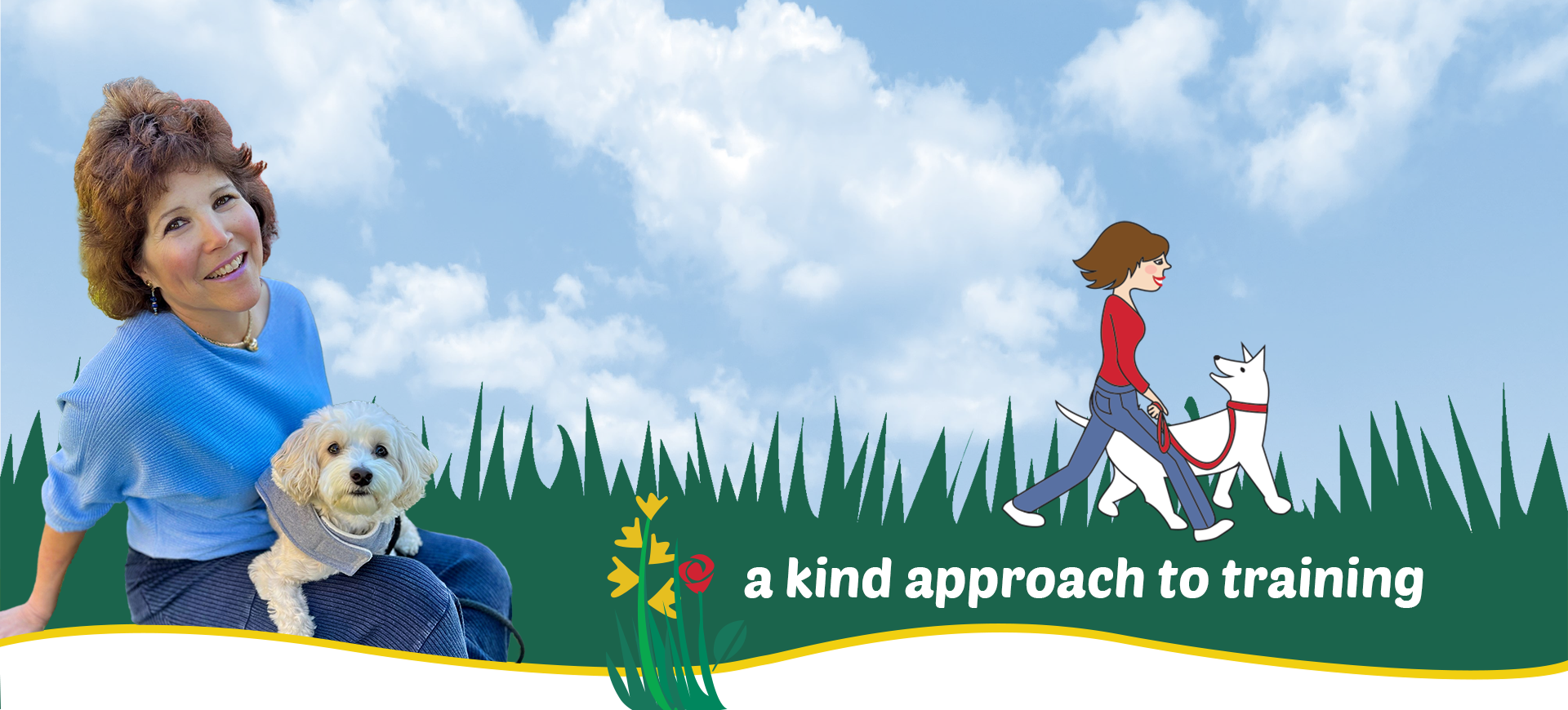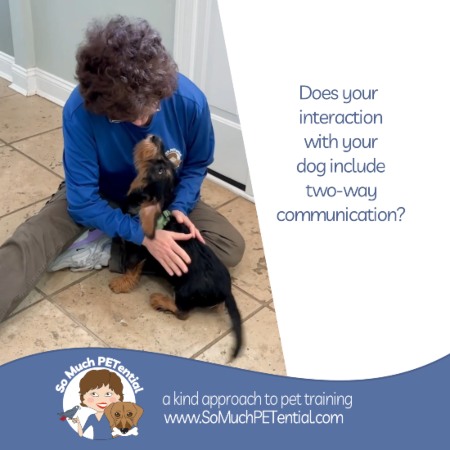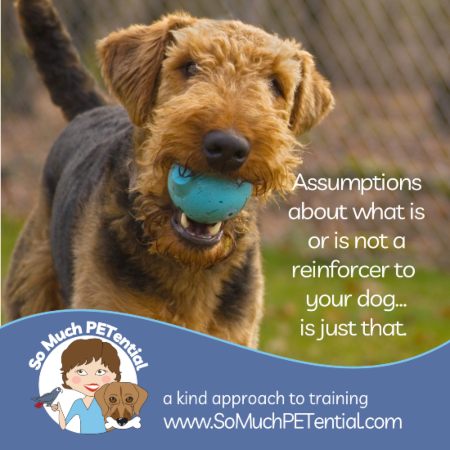“My dog isn’t as smart as my previous dog.” I have heard a version of this many times, people comparing their current dog’s intelligence to that of their previous pet. I get it. Their previous dog did more of the behaviors they like and less of the behaviors they don’t like or their previous dog seemed to more quickly learn things they were trying to teach. It is easy to see how people without the knowledge to know differently could interpret their dogs’ intelligence that way.
Here is thing. Just like human kids, every dog (or other species) is an individual with unique experiences, genetics, breed traits, preferences for reinforcers and learning styles. Adding to that, environments differ and change. People differ and change. Unwanted behaviors can get unintendedly reinforced. Stress can impact behavior. The list can go on. There are just so many factors that impact what an animal does or does not do at any given moment.
Think about children. There are kids who learn better through auditory or visual tools and there are those who learn better by reading lessons. Some may make more mistakes if they feel pressured or punished while others excel in competitive environments. Some may excel in math while others are gifted writers. Some kids may have a developmental issue like ADHD or dyslexia that affects how they learn. Some don’t learn in a classroom because there are other students who are bullying them. The list can go on and on.
However, many will tend do to better when their nutritional and safety needs are met. Many will tend to perform better when they feel valued, listened to and heard. Many will be more motivated in an environment where they are taught in a way that helps them learn by people who reinforce them for their strengths and accomplishments.
Now think about your pet as your child. Your pet is no different. Every learner is unique with unique influences, even puppies from the same litter.
A big part of your role as your pet’s teacher is to learn how to and practice ‘listening’ to what your pet is saying, being open to making adjustments in your interactions and teaching moments, strengthening your training skills, and focusing on how you can ultimately help your pet (and you) to succeed.
Oh yes, and have fun doing it!
THEN you will see your current pet shine!
Would you like some help figuring this out? Please reach out!







